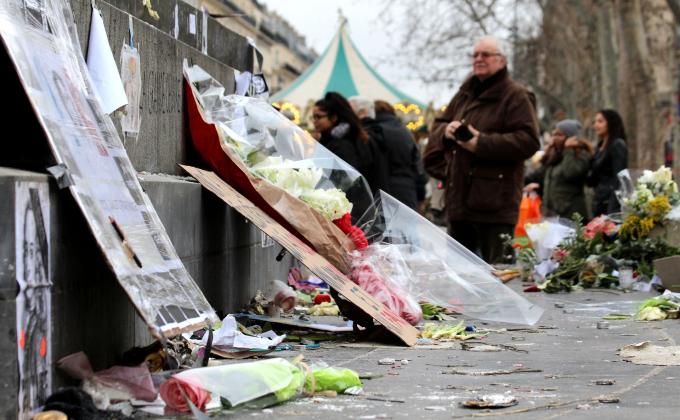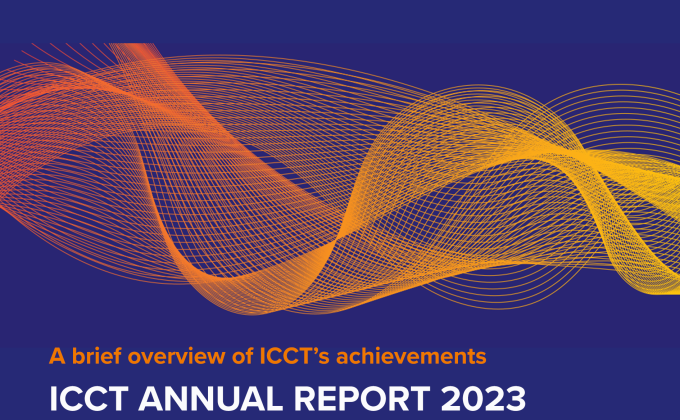In the past five years, online extremism research has focused, amongst other things, on emergent movements with an anti-feminist agenda. Incels, the far right, and jihadist actors all have explicitly opposed the rights of some women, while upholding the rights of others. They have also challenged the freedoms of those identifying as LGBTQ+, as well as Shia (Sunni jihadists), ‘liberals’ (the far and radical right), and ‘Stacey’s’ and ‘Chads’ (incels). Identity matters in victim selection by these actors, in other words.
For researchers, this can pose challenges. For the past two decades, the internet has enabled researchers to analyse terrorist communications, identity, propaganda and visuals to an unprecedented degree, and across ideologies. Indeed, the internet has enabled research of primary materials that would otherwise prove too dangerous: a Sunni Muslim researcher of the Islamic State who opposes their violence for instance; a researcher of colour studying the far right; a feminist scholar seeking to track incel interactions. Yet, as online extremism research has evolved over time, it has become clear some researchers are suffering harms, and some of these are specifically related to their identity.
This is a key finding of a new study I have been part of that explores harms to those involved in the study of online extremism and terrorism. The first REASSURE project report, Online Extremism and Terrorism Researchers’ Security, Safety, and Resilience: Findings from the Field, was published on 7 March 2023. It documents harms faced by researchers, how they cope, and the role of institutions within this. A further two phases of the REASSURE study are planned: the second talking to those professionally tasked in related areas such as police, tech companies, and journalists to better learn how to safeguard; and third, the production of guidance for our sub-field. The report is based on semi-structured interviews with 39 researchers engaged in primarily jihadist and far right research in global north-based institutions during 2020. These researchers were based in think tanks and universities (predominantly) in nine countries and representing 13 nationalities.
The REASSURE report found two thirds of respondents experienced harm, whether an external threat to security, such as being trolled or receiving a death threat; or an internal emotional harm such as depression or anxiety; withdrawal or nightmares. However, institutional protections were ad hoc: only a third of researchers had been asked to apply for ethical approval to begin their work, which was therefore conducted without institutional oversight. Instead, the informal community of researchers was the main source of support.
In this ICCT Perspectives I outline the importance of identity in the harms we noted amongst those taking part in REASSURE’s study. Here identity encompasses both protected identities such as race and gender, and also career status as a category assigned by the academy to describe or identify scholars in relation to their status, and therefore privilege. I then explore why discussing identity and harms matters for the health of the terrorism studies field, and what could improve the situation for researchers going forward.
Harms and Identity
Of the 39 total REASSURE interviewees, 22 were men and 17 women and they mainly identified as white (29) or white Jewish (3). Seven of the interviewees were people of colour, including three who identified as Muslim. None of the respondents identified as LGBTQ+ or referenced their sexuality when discussing their experiences and harms. REASSURE spoke to researchers across career stages and of diverse professional identities. A third of the interviewees, (13) can be classed as senior, which means they had eight or more years of experience on permanent contract. A considerable number (26) were junior: those completing a PhD programme, or employed on a temporary contract, or early-career researchers within eight years of completing their postgraduate research; REASSURE also spoke to those with the equivalent professional experience, for instance in think tanks.
One troubling REASSURE finding concerned the role of identity in the harms suffered. Although there was good news, in that REASSURE found not all researchers are inevitably harmed by what they study –in fact one third said they had experienced no harms beyond that of any other job – there was also bad: if you are a junior scholar, a scholar of colour, or a woman, harms can be related to identity and might well impact your future career.
Racism, misogyny and abuse are well-documented features of online environments. Unsurprisingly then, respondents reported that the harms they faced were both raced, and gendered, and some of the harms were severe. In perhaps the most serious case, a researcher of colour was threatened online by a jihadist actor. They recalled how the attacker used their faith in this:
I was singled out for an attack, but also for a threat and questioning my Islam, and I can tell you that was very personal to me because I am someone who is profoundly religious… And I remember it was a Friday but… I mean, I was overwhelmed by anxiety and I remember sitting in the mosque, listening to the imam who gives the usual sermons in the mosque, but I don’t, I can’t… remember what he said in the sermons – I was only thinking about what happened.
In this case it was the proximity of the identity of the researcher to the group being researched that caused deep anxiety. This proximity was also a relevant factor in abuse suffered by women researchers. The majority of the nine women researching the far right said that their gender had been mobilised against them online. Five said they had suffered harms including trolling, doxing (in which personal identifying information is shared online) and harassment or abuse. In one of the worst cases, a woman researcher described how extremist hackers had also deliberately targeted the parents of her children’s nursery classmates. Another described how extremists targeted her husband – a person of colour – as a means of harming her.
It should be noted that nine of the respondents had received death threats (eight men and one woman). However, these threats were not experienced as harmful, except by those respondents whose identities were proximate to those making the threats: the Muslim researcher threatened by jihadists for instance.
In particular, women respondents noted it was important to try to limit publicly available personal data online, as abusers would seek this out and utilise it in harassment campaigns. One woman respondent told REASSURE about work on 4chan:
4chan is premised on controlling your feelings. Shitposting and trolling, but also then exploiting the online traces of your victim… these three very young men in their late teens or early 20s, somewhere in the world, had done quite extensive research [on me]. My body was kind of dehumanised and magnified, so I became a meme myself. And that was obviously in misogynist terms.
Men working on far-right material had also reported harms. However, one, a scholar of colour, told REASSURE he had rarely been targeted:
I think gender has a way bigger impact on whether or not you’re likely to get trolled than your ethnicity. I’ve never gotten like, a really… Like, I’ve gotten occasional emails, like “Go back to your country, stop polluting our universities”… I very rarely get any, like, publicly racist comments. I think that’s strategic to some degree. And I think also my gender protects me quite a bit… or perhaps I’m simply just not prominent enough to attract their ire.
Seniority was also deemed to be a protective factor. REASSURE respondents worked on brutal and violent material, such as jihadist video executions, or images of gender-based violence; also, offensive and distressing textual data, such as racist far right propaganda, or incel texts inciting sexual assault. While only half of more experienced respondents, with ten years or more in the field reported harms, 12 of 13 junior scholars – with fewer than five years in the field - said they felt harmed by their work. Of particular concern, these junior researchers sometimes felt afraid to speak up. One said, “I mean, I’m a young researcher, I want to get into the field researching terrorism. I don’t want to cause a fuss on my first project, I can do it by myself. That is my thing. I’ll handle it.” Others were concerned that they would not find sympathy, or might be seen as incapable, or weak, or unsuited to the work, all at a time when they were looking for opportunities and job offers.
Some junior researchers had already faced challenges. In part interviewees suggested this was about a wider culture of ‘macho bravado’ in the wider terrorism studies community, which could be institutionalised. One early career scholar recalled a senior academic suggesting students should not seek to restrict viewing brutal images, as this was at the heart of the subject, leading to a junior researcher ‘flipping out’ when they saw a gruesome image. Two other early career researchers suggested such harms were connected to bullying. One spoke out about emotional harms that could result from online terrorism research only to be publicly described as ‘weak’ online by a senior academic. Another noted, “I think that our field really struggles sometimes in terms of behaviour and bullying and basic inter-personal professional-level things.”
Bullying is a top-down phenomenon, which might explain why senior researchers felt less harmed. Another possible explanation is that respondents themselves might not be best placed to assess the degree to which they are being harmed, or to notice that harms increased over time. As one senior academic in his 40s said:
You hear the… probably overused cliché of... the frog sitting in the pot of warm water and the heat’s getting turned up a little bit, [and] it feels all right. And then at some point, it kind of gets a little too hot. And then at some point, it starts to boil a little bit, and at some point, it could kill you. The point is, you don’t really know, necessarily, what that threshold is.
Additionally, respondents reported some coping strategies developed long-term, that they considered potentially harmful in themselves, such as developing a dark sense of humour about their work.
Professional Harms: Silencing the Researcher
Some researchers reported the effects of this abuse in self-censorship and silencing. This had potential career harms, given academic promotion is dependent on publishing, impact, media presence, participation in public events, and visibility and profile in the field. Women researchers in particular discussed how one outcome of abuse was the decision to reduce their visibility, which might mean refraining from social media posts, protecting social media accounts, turning down media interviews, or even deciding not to pursue some areas of research.
The woman researcher who had been memified by far-right trolls talked about what happened after this. She said, “I kind of withdrew… from public debate for a few months, said no to all media appearances… And, you know, that effect is not just to intimidate and frighten the researcher, but also to silence the researcher… So, in that sense, it kind of succeeded.” Another woman researcher said she simply avoided “doing many things like giving interviews or when it comes to areas that I know will attract a lot of attention. Which I think is kind of sad. But it’s like, I don’t… I can’t take it. I’m tired.”
REASSURE found interviewees felt sharing these experiences was an important part of recovering from them, and getting through them. However, they needed to talk to people who understood. They did not necessarily want to talk to generalist therapists or counsellors, who might balk at hearing of the more brutal activities of groups like Islamic State. Ideally, they wanted to talk to other people like themselves, from their communities. Additionally, few institutions provided wellbeing support.
This meant that researchers were the ones taking responsibility for each other, working through harms, and doing the emotional labour of caring that might otherwise be taken on by institutions themselves. If junior scholars, women, and people of colour are the most at risk, it stands to reason that other junior scholars, other women and other people of colour are the ones who end up doing the work to support, advise and protect one another. While nobody mentioned their sexuality when discussing identity and harms within the REASSURE research cohort, LGBTQ scholars are clearly also at risk. Caring for others in your research community is important, and REASSURE found researchers keen to help one another. Yet this help is – like it or not – an additional layer of emotional labour and responsibility that these scholars should not have to bear.
Harms and the Long-Term Future of Terrorism Research
If we want to safeguard knowledge, and keep experts in the field long-term, institutional bodies need to take informed responsibility around protections for researchers. Terrorism research is not going anywhere. Online spaces do not appear any less toxic now than when REASSURE interviews took place, and there is work to do to challenge this toxicity and the terrorist groups and extreme movements that flourish in it. These spaces need to be researched.
Importantly, respondents believe in the value of the work they were doing and this belief was an important mitigating factor in any harms they perceived. Few people suggested that experience of harms was a question of personality; most believed reduced harms centred on the ability to learn appropriate coping mechanisms, as well as technical security methods, and to have others to talk to who understood the subject matter. Institutions must be at the heart of such learning.
That means taking the internet seriously as a field of study. REASSURE respondents themselves regard the internet as a place they go to study. However, they note the frequently ad hoc system in which institutions often fail to categorise the internet as a research field. This matters because some institutions only ensure an ethical approval process through their Human Research Ethics Committee (HREC) or Internal Review Board (IRB) for those who are perceived to: one, do research with humans, and two, travel to a risky environment to conduct that research. This meant only a third of respondents had discussed their online extremism project with an ethics board.
While internet research does not involve travel, it does involve immersion. Furthermore, the nature of that immersion is likely to increase. When FB changed its name to Meta, the implication was clear: social networking was no longer just about the internet. The United Nations has already considered the potential terrorist threat in the metaverse, and how to counter it. This hybrid world, potentially incorporating virtual reality, the net, gaming, and business is already home to celebrity events, and lucrative ‘unreal’-estate deals. Anything that happens in the universe can happen in the metaverse, including terrorism, and terrorism research, with harms to researchers. There are already reports of sexual assault of researchers in the metaverse, including virtual gang rape. There have been campaigns of harassment and bullying.
Researchers need to understand the possible risks in an environment in which the boundaries between on and offline are ever more blurred; and institutions can no longer dismiss such a world as somehow not real enough to warrant safeguards for their researchers. Indeed, other industries can show the way. Tech companies are facing pressure to improve conditions for content moderators, in part in response to possible litigation. Meanwhile, professions from journalism, to the civil service, to the police, and health services are evolving both guidance for staff, and a language that enables them to express how they are being harmed. Terms such as ‘moral injury’, ‘vicarious trauma’ and ‘trauma-informed’ practice have yet to gain currency in universities, while they are familiar to other fields.
Conclusion
Researchers are not victims of terrorism. However, we can be harmed, and if our research matters at all, then so too do those harms. In particular, if researchers from a minority background are unable to do work on the areas that are of most relevance to them, the field is likely to be dominated by those from the majority perspective, advancing dominant narratives. Whether the minority is scholars of colour determined to work on race-based or far right extremism; Muslims who study violent jihad; women choosing to analyse online misogyny; or those identifying as LGBTQ+ exploring homophobia, transphobia or other gender-based abuses online, these interests are often the most marginalised within security studies. Those from marginalised communities have the potential to increase the relevance and knowledge of the field, and to promote the inclusion of a greater range of research perspectives and interests. Conversely, if protections for such researchers do not exist, the field risks the perpetuation of the most dominant narratives and research-agendas, and will therefore, inevitably miss things.








